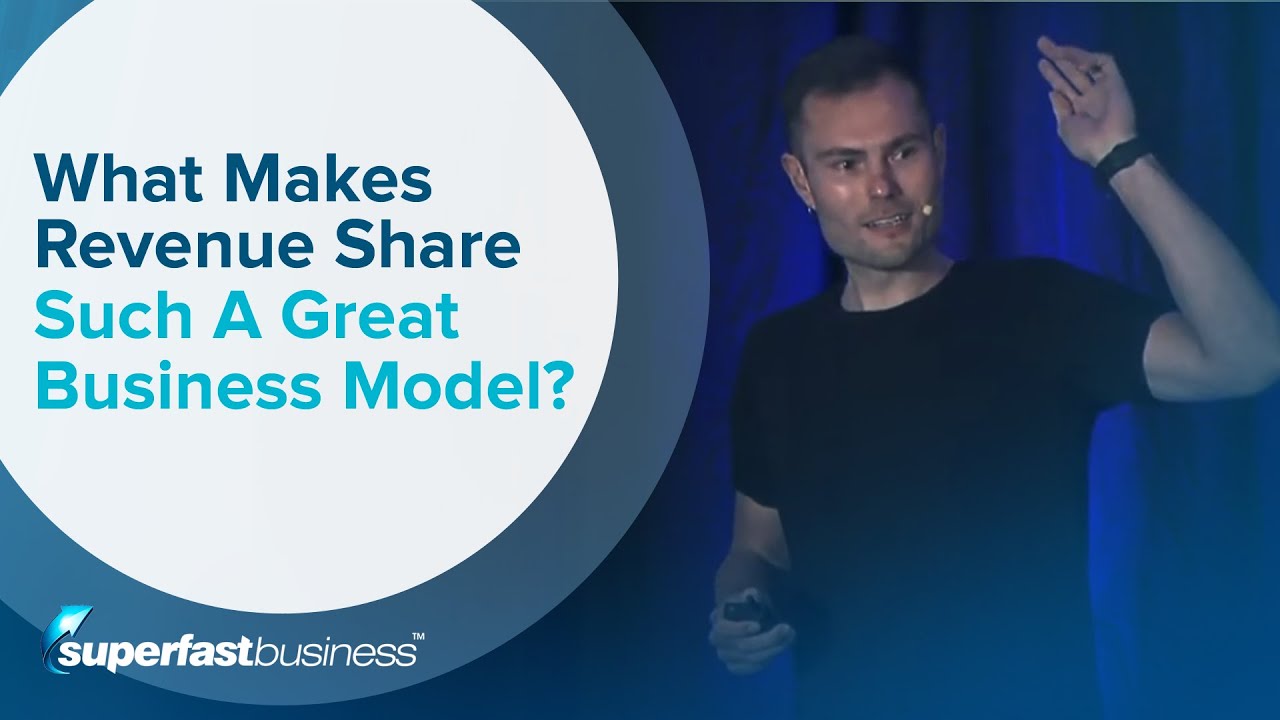
Revenue sharing is a performance-based income model. An effective revenue sharing deal structure is offering your expertise to a business owner to help them grow their business. In return, you get paid a percentage of the revenue as a royalty fee.
It is leveraged income.
This is not a comprehensive list, however it will grant you a good idea of how revenue sharing is applied in other types of partnerships.
You can do revenue sharing between
- Investors / stakeholders and businesses. Stakeholders can include banks that issue loans to the business. This can be an alternative to paying out equity to stakeholders.
- Local government units. They can share tax income.
- Co-owners of the business.
- Reverse revenue sharing. This means that instead of being the expert helping another business owner, you will be the business owner and will be paying an expert for services rendered. You will be the one owning all of the assets.
In this article, we are going to focus on the partnership between the business owner and the consultant / expert / service provider.
What makes revenue sharing so great?
As Charley Valher mentioned in one of his SuperFastBusiness Live presentations, net revenue is a pure metric. It is actual money collected and banked, so that means refunds are taken into account.
Profit sharing is a similar business model, however, business owners could easily manipulate profit numbers, to make the business look less profitable for tax purposes.
And the same could be done to make your profit share smaller.
Another possible reason for your profit shares to get whittled down is when owners use business funds to pay for personal expenses. This is very common.
With revenue sharing, you don’t have to worry about this.
Getting part ownership in exchange for your expertise instead of revenue sharing can also be great, but may also be dangerous for you. If you become part owner, then that means you’ll also be sharing expenses and liabilities.
Your business partner may have other businesses, and if you’re not careful, then you can go bankrupt due to things like cross-collateralization. Let’s say your business partner secures a loan, and lists all his businesses’ assets as collateral. If he defaults on the loan payments, then the lender can seize the assets as payment, and that includes assets of your part-owned business. And that is how you can go bankrupt too, even if you’re not the one who secured a loan, and even if the loan was not for your part-owned business.
With revenue sharing, you will be in very little danger of going bankrupt along with the business owner, if you draw up your contracts properly.
Fee-for-service is similar to revenue sharing in terms of getting paid for services rendered. With the fee-for-service model, you can do what you have been paid to do, stop there, and it would be a fair transaction.
With revenue sharing however, there is more reason to work harder. Your pay depends on revenue generated with your assistance, therefore the larger the revenue, the larger your pay. Plus you may have payout upon exit / sale of the business.
Is revenue sharing for everyone?
This might surprise you, but revenue sharing is actually not for everyone.
It is best implemented as supplemental income at first, because this model is not a steady source of income. You can think of it mostly as commission-only, so there’s usually no base salary for you to depend on.
For a more reliable revenue stream, you might want to go for the fee-for-service business model instead.
Is there a downside to revenue sharing, other than fluctuating income?
That depends on how the revenue share agreement was drawn up so protect yourself legally. One of the main potential negatives is the possibility you will do work for no reward so choose partners wisely.
Any kind of business partnership has its risks but you can minimize those when both partners have each other’s best interests in mind, and draw up fair contracts. But let’s admit it, there are many business owners that don’t always operate this way.
Different revenue and partnership business models
There are many models you can choose from such as:
- 50/50 split. James recommends avoiding this type of deal, as this is often unintentionally unfair. Both parties usually start out with good intentions but one will often end up working more than the other. A 50/50 revenue split can lead to resentment and a split.
- Royalty. A percentage of the revenue can be paid out to you as royalty, based on performance.
- Retainer + royalty. This means you get a flat rate fee (retainer) and then royalties.
James usually prefers the royalty model as it suits his long-term goals, and because it feels less like a job to him. Royalty percentage is not a set number. James has come up with his own formula for the royalty percentage, dubbed the Schramko Rev Share Formula, and so far, it has been working out well for the past three years that he’s been using it.
The gist of that formula goes like this. James and the business owner pick a certain amount of revenue as the starting point. Since James is the expert in this scenario, it’s his job to help the business owner grow the business. As proof that the business is growing, the revenue needs to exceed the starting point.
James only gets a percentage of the revenue if it exceeds the starting point. That means, if the business is not growing, James does not get paid. That is why he calls this a “performance-based income model”.
An easy way to find rev share partners
It is important to make it known that you are looking for partners.
If you are already offering fee-for-service to business owners or you have past clients, then you may already have found your future rev share partners. It shouldn’t be too hard to convince them considering that this is low-risk for them, and pretty high risk for you, as you’re the one in danger of not getting paid.
You can also ask family and friends for referrals. If it helps, create a demo of what you can do, and/or what outcome you are offering.
So let’s say you’ve found some potential revenue sharing partners
You would want to evaluate your potential partners before drawing up a contract, and filter out unsuitable ones.
Get to know them first. It is okay to be picky. After all, you’ll be working closely with them, so liking your partner(s) personality is a big deal.
Do you trust them? You are going to have to trust that they will pay you, after all.
Do your research. If you need to, hire an accountant to make sure that the business is legit.
Also check for the company’s reputation. Avoid companies with bad press.
If you can, have a look at the company’s profits and losses audit report, check out their team. How many decision-makers are there? Generally, find out as much as you can about how they operate their business.
You will want to check if your potential rev share partner is desperate. This is usually not a good sign. James recommends finding a partner whose business you can grow, as opposed to saving a business from imminent bankruptcy.
Along similar lines, choose a business owner who wants the business to grow. There are rare instances where the owner is quite happy with the status quo and are happy with life, and are not looking to expand their business, as this usually entails more work for the business owner.
You and your assets
The big question you need to ask yourself is: can you HELP them? Can you deliver them quick wins straight out of the gate?
Find out what else you can bring to the table, aside from your expertise, such as a list of contacts, suppliers, materials, email list, etc.
See if you can help them for a short term or the long haul.
Drawing up your revenue sharing agreement
As the expert, how would you get paid, if the company provides refunds? One easy way to solve this is to get paid the month after. So your pay is going to be based on revenue net of refunds the month after.
You will need to agree on a regular reporting schedule and method, along with the means of verifying the reported numbers, such as an audit. That way they can’t fudge numbers.
It is also important to have a point of contact for these reports. Nobody likes to get transferred from department to department, so make sure you know exactly who to contact should you have any questions or concerns.
Make sure that the revenue sharing split is crystal clear, without ambiguities, and that you can easily calculate how much you’re going to get paid for. If the contract is difficult to understand, you may want to have it re-drawn.
There are other things you need to consider when drawing up your contract, starting with what will happen if they sell the business. You can choose to continue the partnership with the new owner, if they pass your filters.
What if they want to clone their business, implement all the things you’ve already helped them with, but without obligation to pay you? Make sure to cover this in your agreement. They are welcome to clone their business, as long as they pay you your fair share.
Unforeseen circumstances can happen, such as personal disagreements. What if you discover you don’t like this partnership and want out? Make sure you can exit properly.
What if they want out? You can arrange for them to pay you a buyout fee.
Intellectual property should also be addressed in your agreement. Make sure that whoever brings in the intellectual property gets fair compensation if they are to give it up upon exiting the partnership.
Some people may consider it a bad idea to have exit strategies, because it would be as if you’re expecting the partnership to fail. However, it simply means preparing for the unexpected.
What if they don’t pay you? Hopefully, this doesn’t happen to you because you’ve carefully chosen your partners. But make sure this is covered in your contract, and even if it is, you will hopefully not pursue the matter, because life is too short to be chasing after bad debts.
What if your business partner dies? Again, hopefully this doesn’t happen, but in the unfortunate event it does, make provisions for what is supposed to happen to your partnership.
Finally, make sure your revenue sharing agreement is clear and that nothing is left for assumptions.
James covers all of this in greater detail, including the Schramko Rev Share Formula, agreement terms and more in his Rev Share Deals training course on our products page.









Leave a Reply